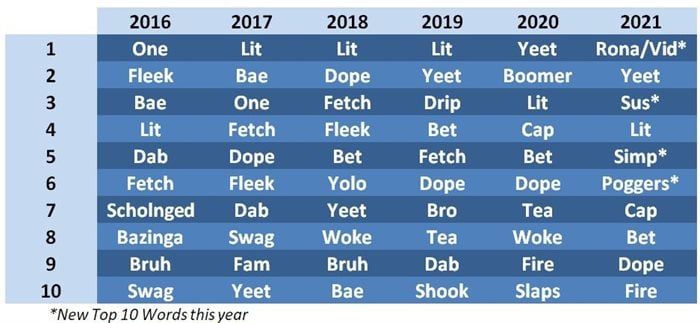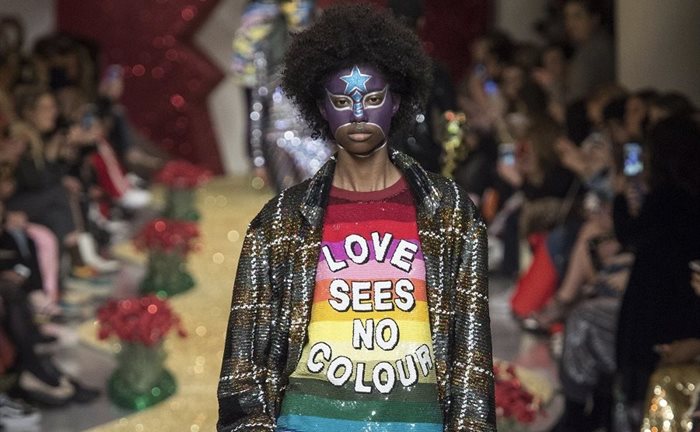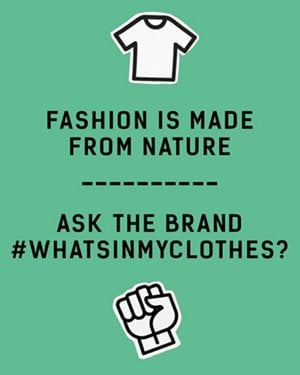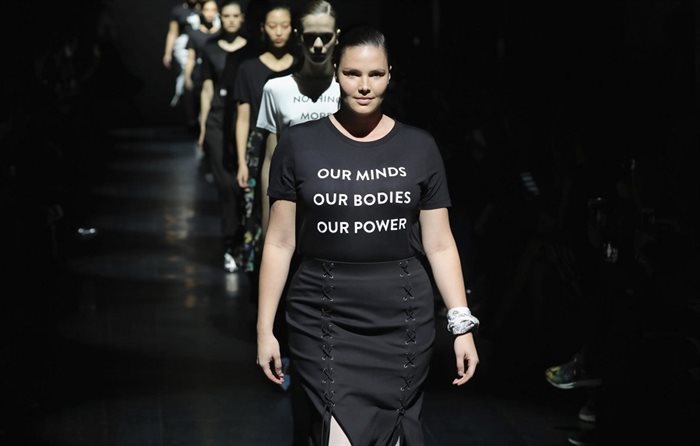
Top stories






More news


Marketing & Media
Ads are coming to AI. Does that really have to be such a bad thing?














Understanding business practices are no longer enough. Predicting of emotion, behaviour and purchasing patterns of the consumer is critical in a world that demands representation, transparency, equality, sustainability and fair, ethical trade.
An overarching observation of markets or consumers by age, geography or income is important, but looking into how and what they buy and consume is based on culture, aspirations, lifestyle, personal beliefs, season and geographic locations.
The factors that influence brand loyalty decisions are also changing, and fast. Ask yourself, what does LGBTQ++ mean? 'E-Girl', 'VSCO girl', 'Poggers' or 'No Cap' indicates?
What does a 'VSCO' girl wear? What are the brands she associates herself with? There are goths, punks, dark academia kids, cottagecore stans, and scores of other subcultures thriving both online and IRL.

Or how about some local?
Yes, these are 'buzzwords' – phrases that could confuse a boomer. Still, as with lifestyle and pop-cultural movements of the past, each of these has a unique fingerprint, an aesthetic, a brand preference, a hairstyle or make-up visual aesthetic.
These represent communities of consumers, geographical and non-geographical; these cultural movements have phrases, tone of voice and 'slanguage'. Whether these are TikTok communities or IRL communities, diversity is ever-present, and understanding is critical.
Think 50's rock and roll or the mini skirt of the sixties or the grunge movement of the '90s. Each cultural, sub-cultural or counter-culture has a story, a lifestyle, and we need to ask ourselves how we are dealing with the diversity of these today or how to tackle the future culture.

As focussed sociological trends accelerate, products are no longer just products. In an industry that focuses on personal expression, aspiration, lifestyle and identity, consumers align with brands that align their businesses with necessary directives that 'speak' to them.
When we say 'speak' to them, we mean 'speak with them' or, in exceptional cases, 'speak for them'.
Gone are the copy-and-paste approaches to business, the 'we've always done it this manner' or the sweeping or generic conversations. Consumers want honest discussions, and they are not only demanding them...they have them already – with or without you.
The need for businesses to be aware of the rising costs of living, unemployment, reverse migration, or the state of health for a great majority of the world means that businesses and industries have to reshape how they understand the world and its people. This is enforcing the need to re-engineer their business models and establishing new strategies based on the shift in the process and consumer demand.

Activist movements protesting the environmental impact of mass industries, including fashion, have made more consumers aware of their ecological implications regarding fashion purchasing habits and consumption rates alongside their growing concerns in other sectors.
Lifestyle groups that focus on living a simple lifestyle and place much importance on sustainability and community issues are challenging fashion industries. They are demanding change, and not only surface-level change.
Virtually all (95%) of Generation Alpha members polled said they consider taking care of the environment an important issue, compared to only 37% of Baby Boomers and 57 % of Millennials. And more than a third (38%) of Generation Alpha said they think it's essential to recycle too, compared to less than a quarter (22%) of both Millennials and Baby Boomers.
Conscious consumers are limiting their purchase of non-essential products and are less likely to make short-term and uninformed shopping decisions. Consumers often take their time to research products and services before purchasing.
Black Lives Matter, Black-owned brands, fem-preneurs, female-owned businesses or the demand for localisation all point to a new way of business. Collaboration is the future, and if you are unaware or unfamiliar with the new approaches, it is time to learn and adapt.
Collaborations between artists and brands have been around for years. However, these partnerships speak more to younger target consumers than ever before. There is an element of authenticity and creativity within these collaborations deemed more attractive to the youth.
Protest fashion, and fashion as protest, have lived and thrived for decades - from corset-shunning Coco Chanel's defiance of societal and gender norms early in her career or the introduction of the punk movement by activist, Vivienne Westwood.
Cultural and sociological movements include collections that liberated women's literal movements, the world's most famed red carpets being hijacked for their global reach by Hollywood stars (and politicians) in looks that sent a message on their stance in a movement (e.g., #TimesUp, #BlackLivesMatter, #OscarsSoWhite and #MeToo).

What does this new landscape mean for your business? How to make this knowledge your power? How do you safeguard your business for the present and the future?
Know that consumers are not afraid to pay more for a brand that aligns with them from a personal, political or aspirational perspective.
Brand stands have grown into marketing and product manufacturing and offerings, but the demands are more profound than this. Consumers request businesses to match words with action and are highly critical of 'performative' marketing.
If a business or brand speaks 'female' empowerment, consumers demand to know how that fits within the business structure or health benefits.
When aligning with a protest movement through saleable merchandise, it is crucial to ensure that all parts of the supply chain are ethically-sourced and manufactured as consumers perceive brands as being disingenuous.
If there are exploitative groups within the supply used to produce a fashion item aligned with an activist movement whilst not honouring their internal people, 'cancel culture' rules and challenges from consumers can be highly detrimental for brands.
Cancel culture is by its very nature reactionary and particularly volatile as the entire movement relies on mob mentality. This mob mentality can be detrimental in an era where fake news and misleading reporting are rife and has resulted in many a business nightmare.
The 'undoing' of brand fails often comes at a higher cost than the knowledge-based actioning of business intelligence.
For any fashion business operating at this time, it is critical to identify the following:
• What is the brand's personality – how does it communicate, and where?
• What is the value proposition to your consumer – why should I buy?
• Relook at your consumer profile – immerse yourself in their world, update your research methodologies and avoid using dated data
• Identify your consumer's aspirations – you are on a journey together. What does that journey entail?
• Define your communication and tone – how are you speaking 'with' your consumers?
• How do you deliver actual reward systems – systems that assist consumers with the least admin
• How to build trust and loyalty – knowing that loyalty is built on both 'behaviour' and 'belief'
• How does your internal business represent your consumers – if you are speaking to a specific objective such as diversity, how is that represented in your market?
These points need to be noted and essential to be observed and openly discussed when sourcing and developing any items aimed at aligning to a diverse consumer market, critical cultural or protest movement and furthering the actions of others.
Critical thinking is driving the bottom line and the new sign of the times demands new hard and soft skills. It is fundamental for brands and businesses to understand this and set their teams up to succeed through sensitivity training, unique management methods, and better understanding and training of applying the necessary soft skills into the shifting world.
Gone are the autocratic management days, empowering your team and creative/collaboration partners demand new skills.
Active listening; written, verbal, non-verbal communications; sensitivity to cultural and religious backgrounds; facilitating indiscriminate and open discussion; learning to deal with the mash-up of different company cultures; clear roles and objectives; and more.
These approaches allow for the successful incorporation of creative partners, skilled consultants and cross-brand relationships. These offer incredible opportunities to enable the products to reach a new audience, test products through capsule collections or speak directly to consumers.
This new era of shifting identity, process and consumer demands is challenging but equally opens up a significant opportunity for small and large businesses alike. Innovative thinking, cultural and lifestyle relevance, and brand loyalty are created through new exciting avenues for those who take this challenge on.
These shifts have transformed into a way of life and a real generational change in the new 20s. Meaningful action, awareness and the humanising of consumers will be at the forefront of what consumers look to fashion brands for as their demand for change has arrived and will only continue to do so.
